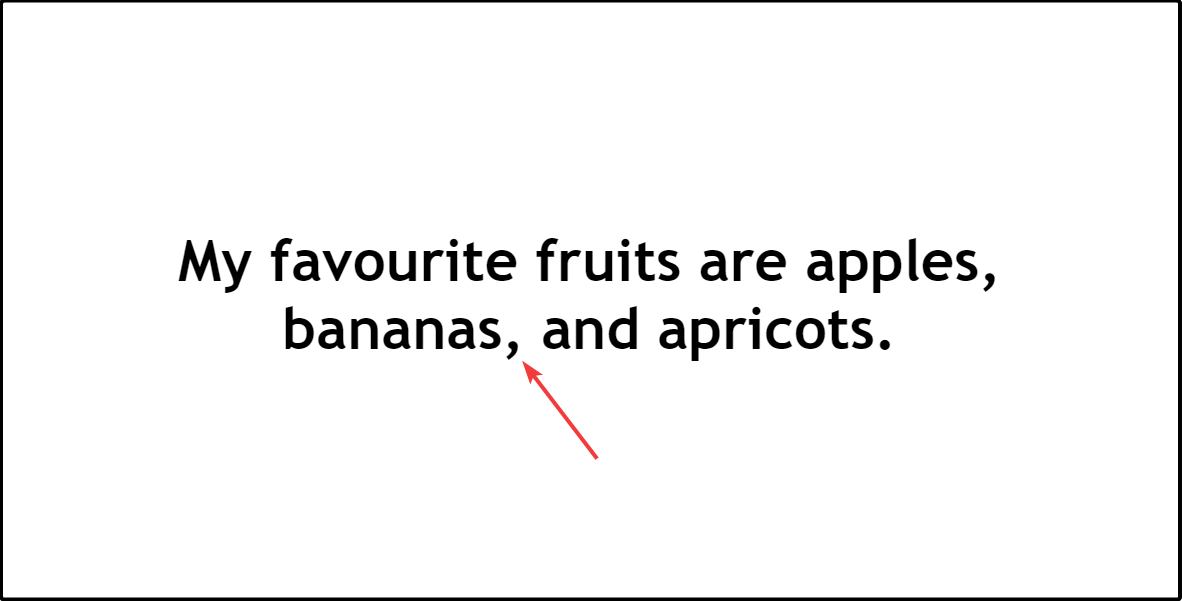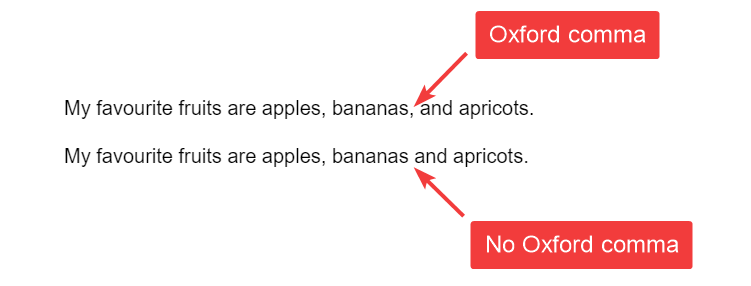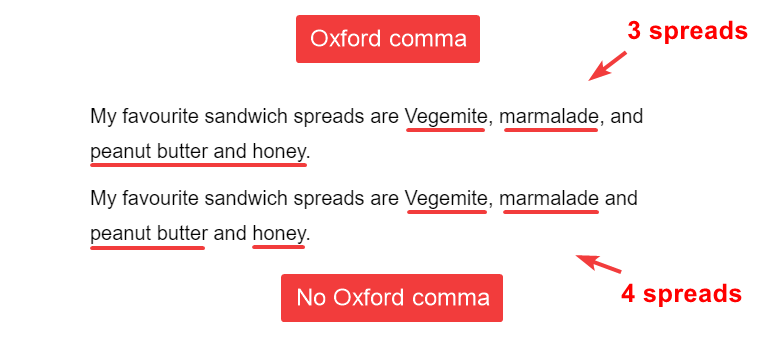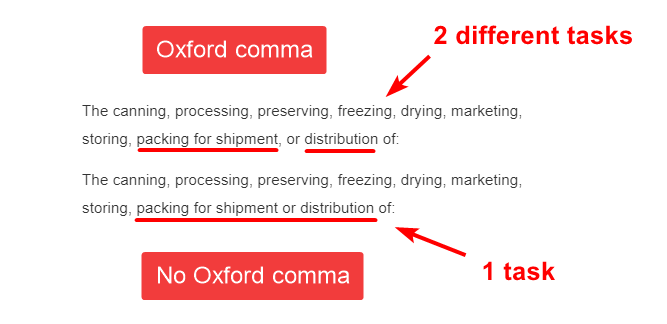When should you use the pesky Oxford comma?
May 31, 2023 • Glenn Murray

When editing copy, one change I most frequently have to explain is why I don’t use the Oxford comma. So today, I’m biting the bullet and writing a post about it. From now on, I’ll just link people here!
What is the Oxford comma?
In a list of three or more items, the Oxford comma goes before the last “and” or “or”. For example:

Is the Oxford comma required?
No. It’s purely a matter of preference. With one exception, discussed below.
Why I don’t USUALLY use the Oxford comma
I like simple, minimalist writing. And that doesn’t just mean fewer words, it also means less visual clutter. When I see an Oxford comma, I see clutter (with the below exception), and my brain hurts.
When I DO use the Oxford comma
I only use the Oxford comma to eliminate ambiguity.
Like when one of the items in the list contains an “and” or “or”. For example, in the screenshot below, the Oxford comma makes it clearer that I have three favourite spreads, not four.

I also use it when one or more of the items in the list contains a few words and might cause the reader to lose track of what the items actually are. For example, in the screenshot below, the Oxford comma before the “or” tells the reader that “packing for shipment” and “distribution” are different tasks.

Questions?
Please leave a comment below if you have any questions. I’m always happy to answer.


Bill Harper wrote on August 7th, 2023
My biggest issue with the Oxford comma is it often screws up the rhythm of the sentence. One of my favourite pieces of writing advice to to "write for the ear, not the eye". And having that extra pause really messes with how the writing sounds.
Reply
Glenn Murray wrote on August 7th, 2023
Yeah, I've never thought of it that way, but I can see that could be the case sometimes. Now I'll never be able to unthink of it that way. Bastard!
Reply